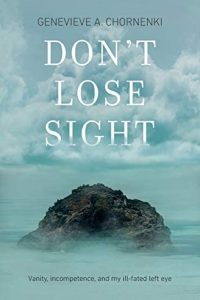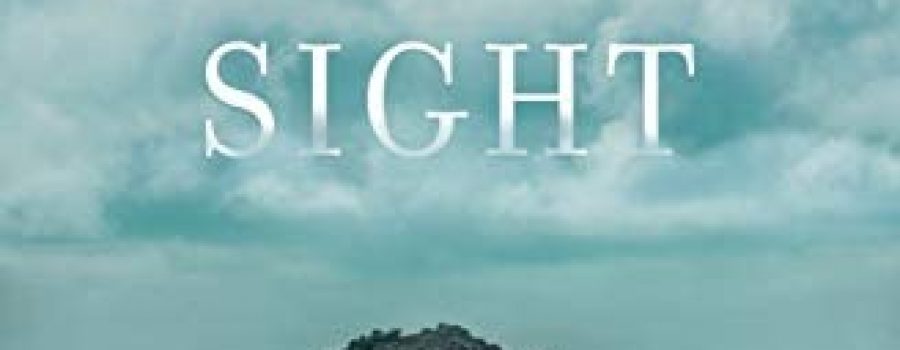BOOK REVIEW

Don’t Lose Sight: Vanity, incompetence, and my ill-fated left eye
Genevieve A. Chornenki
Iguana Books, 2021
ISBN (print) 978-1-77180-480-6
ISBN (e-book) 978-1-77180-481-3
Reviewed by: Heather Swartz, C.Med, M.S.W.
In Don’t Lose Sight: Vanity, incompetence and my ill-fated left eye, esteemed arbitrator and mediator Genevieve Chornenki invites the reader into the pain caused by emergency surgery on her left eye, as well as her tenacious pursuit to safeguard others from similar harm. She shows what it is like to sit in the chair of a participant with a personal interest in a dispute rather than in the chair of a “neutral” who leads others through a settlement process. Genevieve’s intimate and relatable tale is woven with wit, wordplay, and vivid imagery that grasped my attenton immediately and kept me engaged, without pause, for the next 125 pages.
After her optometrist twice failed to diagnose a detached retina, putting Genevieve at risk of permanent vision loss, she decides to submit a formal complaint to the College of Optometrists. A proposed settlement of a guilty plea of professional misconduct and a quality assurance file audit fails to address Genevieve’s underlying motivation for her complaint. Seeking a resolution that will protect other patients from the risk of misdiagnosis, Genevieve declines an invitation to provide a victim impact statement, not seeing herself as a “victim,” and opts to attend the discipline hearing with counsel in order to be taken seriously. Nevertheless, she finds the process impersonal and incomprehensible.
In 1996, as a student of dispute resolution, I read the practical and educational Bypass Court: A Dispute Resolution Handbook co-authored by Genevieve and Christine Hart. It opened my mind and my eyes to a new way of resolving conflict and created a foundation for my developing career. A quarter century later, reading the novelistic Don’t Lose Sight likewise provoked both professional and personal reflection and insight.
We who put ourselves forward as professional listeners should take note. The failings of the discipline process and the errors of the optometrist in Don’t Lose Sight reminded me of the responsibilities all professionals, including dispute resolution professionals, have. It reinforced my operating principle, borrowed from the medical field, to “do no harm.” As mediators we use our skills to help parties articulate their “symptoms” and we actively listen for interests knowing that resolution is unreachable if what is significant to the parties remains unacknowledged. Similarly, as workplace assessors, we ask open-ended questions and listen to many voices to diagnose and name the themes within a workplace so that restoration efforts can be focused effectively. In either role, we risk a misdiagnosis if our assumptions interfere with truly hearing what the other person is saying or if we conduct an inadequate “investigation’” before “treating” the problem. In the field of dispute resolution, mistakes can cause further emotional pain or prompt an urgent crisis that may be difficult for the parties to a mediation or a workplace to recover from.
On a personal level, Don’t Lose Sight, made me aware of my own blind spots, by which I mean those areas where I take my own experience to be a shared or universal one. My brother-in-law of 45 years was unable to pursue his dream of being a firefighter due to colour blindness. Despite knowing this, I recently had a conversation with him where, once again, I forgot he is unable to see colour in the same way that I do. My dearly loved sister, waiting for cataract surgery, has restricted her freedom as the glare and distorted light means she is no longer comfortable driving at night. Shortly after she shared this information with me, I neglected to consider her limitations when discussing a potential visit. Both are stark reminders to me that I need to open my eyes to others’ lived experiences and imagine myself in their circumstances so as to empathize with them.
I was completely immersed while reading the book. Genevieve’s sense of humour and profound humanity took me on a professional and personal journey. Don’t Lose Sight reawakened me to the fragility of vision and sparked an instant appreciation of its power. Looking out the window, I noticed areas of high ground sprinkled with the first snow of the season, golden grasses waving in the wind, juxtaposed against a backdrop of dark green pines and slender white birches highlighted by the afternoon sun. This heightened level of attention to detail will help me avoid overlooking what I should see in my personal relationships and professional practice.
![Swartz_Heather_Headshot[1] Swartz_Heather_Headshot[1]](https://adric.ca/wp-content/uploads/2022/04/Swartz_Heather_Headshot1-e1649369757219-388x388.jpg)
Heather Swartz, C.Med, M.S.W.
Heather Swartz is a partner with Agree Incorporated. She has over two decades of workplace, family, and civil mediation experience. Her current practice focuses on workplace assessments and restorations. In 2017 Heather received the ADR Institute of Canada (ADRIC) Lionel J. McGowan Regional Award of Excellence.

